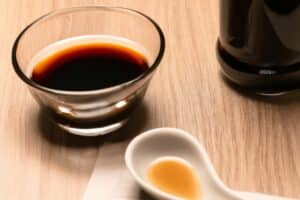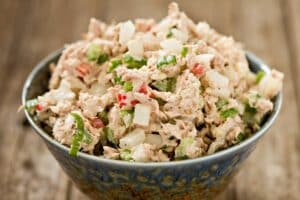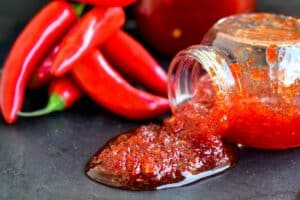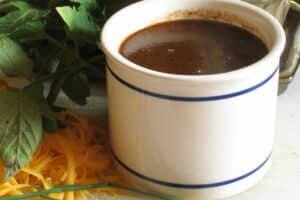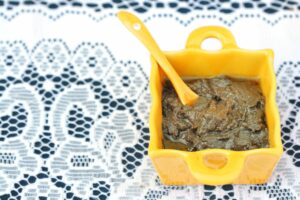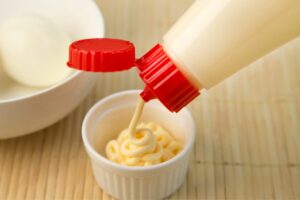What is butter extract? Butter extract is used in cooking and is made from butter, but can be substituted with other flavorings, such as vanilla.
You can find butter extract at most grocery stores, available in the baking aisle, and it mimics the flavor of butter, giving cookies, cakes, icings, and brownies a rich, buttery taste. It goes bad within a few months but is affordable to purchase.
Butter extract works well in most recipes that call for melted butter. However, it’s not vegan-friendly since it’s made by extracting the water from butter and separating the milk proteins.
Regardless, butter extract doesn’t contain the lactose found in real butter and can be used either before or after cooking.
Butter extract shouldn’t be confused with butter flavoring since they’re not the same. Butter flavoring is a liquid that replaces butter with a lower fat content but maintains its rich characteristics and can melt easily into baked goods.
Let’s dive into some butter extract substitutes you can get your hands on if you can’t seem to find butter extract at your grocery store or would prefer an alternate flavor in your recipe.
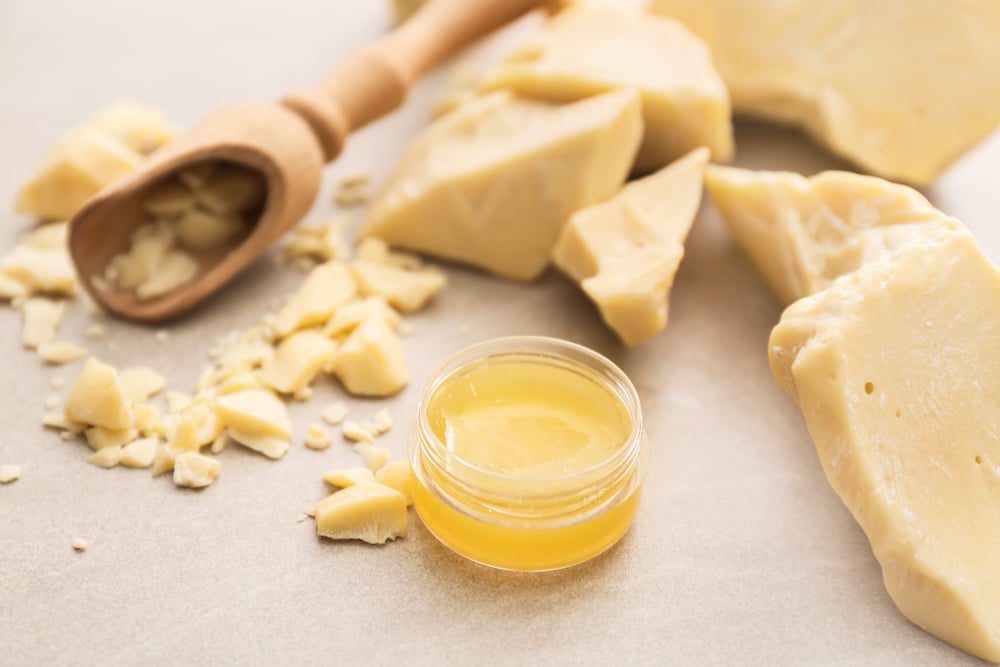
5 Recommended Butter Extract Substitute
This section will elaborate on the substitutions for butter extract and how they can be used in place of this elusive ingredient for whatever dish you’re preparing, whether it’s a cozy meal for you and your partner, or a fancy house party.
You can make butter extract simply by adding water to the butter and straining it. For one cup of butter extract, use a half-pound of unsalted butter and one cup of water.
Bring both of them up to a boil in a pot. As soon as it’s reached the boiling point, remove from the heat and cool.
You can then use a spoon or spatula to press the liquid out of the butter into a container. Keep it in the fridge, and it should last up to six weeks.
For the majority of these, you can use a one-to-one ratio. But some might require more if they lack flavor. Worse comes to worst, give your recipe a taste and add more as needed.
1. Butter

Butter seems like the obvious first pick when choosing a substitution for butter extract. This fat is made by churning the cream of milk, most often from cows.
Many countries are top butter producers, all aiming to develop the richest, creamiest, and most sublime butter. No product can mimic butter extract as well as butter itself.
It’s the preferred fat for countless applications in the kitchen, whether you’re making a sauce or baking or simply want your toast to have more flavor by spreading a dab of butter on top.
Butter can be stored either at room temperature, in the refrigerator, or freezer.
Typical butter is unsalted and tastes nearly sweet, whereas salted butter has the addition of acting as a preservative. European style or cultured butter can have as much as 86% fat content.
Those editions are flavorful with less water and are meant to enhance pie doughs and puff pastry with a nutty flavor.
Butter assists in developing the flavor and texture in baked goods and is normally used by the tablespoon, but other recipes ask for entire sticks.
Not only can butter be used for sweet dishes, but savory too, enhancing and complementing the flavor of vegetables, seafood, meats, and sauces.
Butter can be melted down for dips, frying, and whipped or flavored for spreadable ease on your toast and pancakes. Overall, there’s that saying that butter makes everything better with its soft, creamy, and rich sweetness. And it’s hard to deny.
2. Vanilla Extract
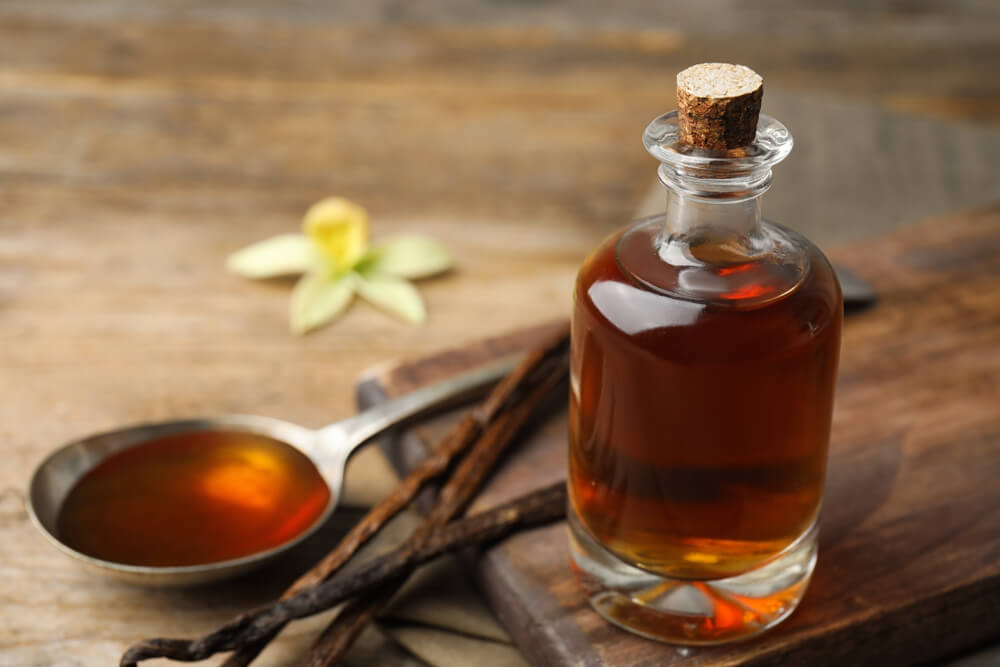
Vanilla beans are expensive, and to get a quality extract, the quality of the beans is important. The beans come from orchids grown in tropical climates. 13.35 ounces of vanilla beans are used per standard gallon, the remaining liquid being 35% alcohol. The flavor will be deeper and richer the more alcohol included.
The best and purest vanilla extract is solely the beans with nothing else added, so take a look at the label before purchase. Some contain a little sugar or corn syrup.
Vanilla extract can last a long time, aging like a fine bottle of wine, or the older, the better. It gradually loses its bitterness without additional sweeteners.
The best part is you can make your own by soaking fresh vanilla beans in vodka or another neutral-tasting liquor.
Vanilla extract takes about two months to mature, but vanilla extract is an ideal substitute for butter extract because of its flavor and recognizability in almost every baking recipe. It’s a must-have for any cooking enthusiast.
3. Olive Oil

Olive oil is made by pressing fresh olives and extracting their oils. France, Italy, and Greece are the top growing regions, and olive oil has a distinct, desirable flavor ideal for Mediterranean and European cuisines.
Olive oil is considered to be one of the healthier fats and can be used in countless recipes, anywhere from salad dressings, to pasta, to frying and sauteing, to baking because of its neutral flavor. It’s high in monounsaturated fats, and there are various grades or quality differences.
Cold-pressing produces a higher quality olive oil with a richer flavor and lower acidity. Extra virgin olive oil is the finest, having a nearly fruity flavor. Basically, the deeper the color, the more intense the flavor.
Olive oil is a prime substitute for butter extract because it can be used in several food preparations, anything from salads to dips, giving a light olive flavor and aroma with a peppery finish.
Olive oil and butter are often used interchangeably anyway; for every four parts of solid butter, use three parts of olive oil.
If the flavor is what you’re after, remember to choose a higher grade olive oil since lower grade olive oils are practically tasteless.
You’ll want the freshest oil when shopping, so take a look at the sell-by date. Olive oil can be pricey but can be used up to a year after purchase.
4. Canola Oil
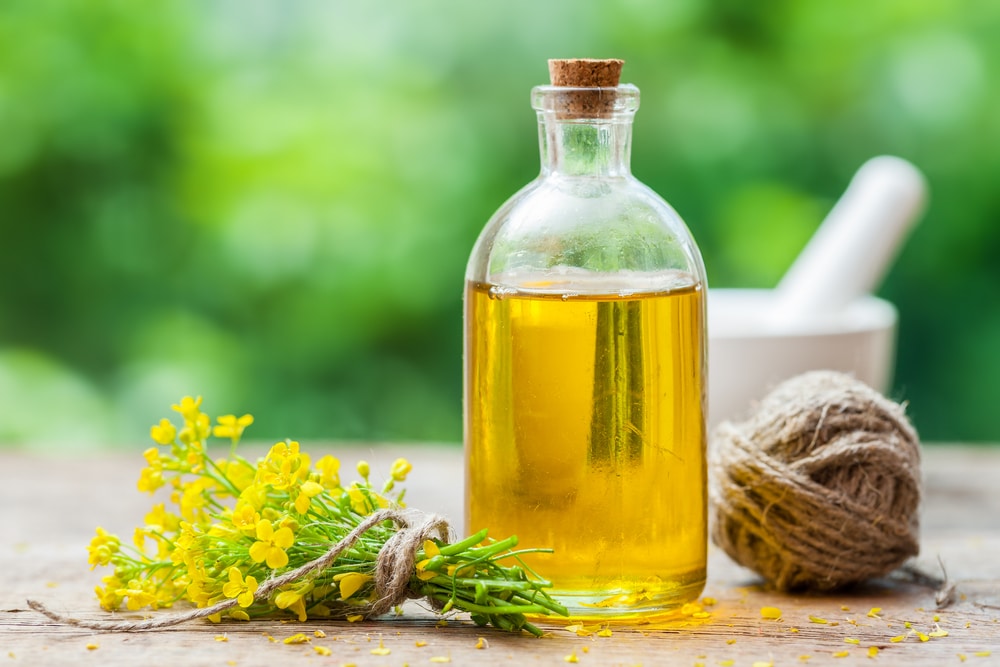
Similar to the former oil, canola oil is extracted from the seeds of the rape plant and is the favorite cooking oil worldwide.
Among palm and soybean oil, canola oil has been cultivated and used by humans for thousands of years. It’s low in saturated fats with a neutral flavor, meant for high-heat cooking.
You can bake, saute, and deep fry with canola oil. Because of its high smoke point, you’re able to use canola oil for frying, pancakes, eggs or even incorporate it into cookies, muffins, and cakes. Canola oil is also used in gumbo, fillings, dumplings, and salad dressings.
It can last six months after opening or a year refrigerated. Canola made this list as a butter substitute because it’s a vegan option to replace butter and gives an appropriate flavor to any recipe.
5. Almond Extract
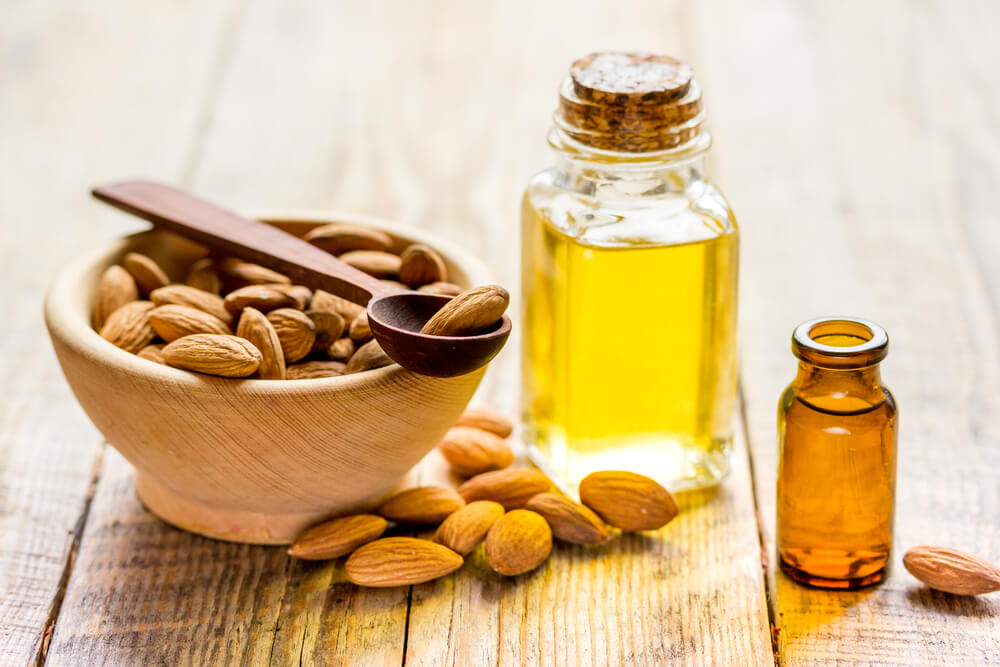
Almond extract is used most frequently in baked goods or desserts. It doesn’t taste like almonds but does have a distinctive smell. Almond extract is created from bitter almonds mixed with ethyl alcohol.
Whole bitter almonds are inedible. That said, their oil is sweet and strong in flavor. In fact, pure almond extract is produced from bitter almonds. But imitation extract contains chemicals to mimic the almond flavor.
Almond extract is a good butter extract substitute because of its inclination for baking and its many uses in toppings or fillings. Almond extract pairs well with fruits like cherries, apricots, and peaches.
The almond extract should be used sparingly since it has an intense flavor that can easily overpower your dish.
Related Questions
Now that you have a better understanding of what butter extract is and how it’s made, let’s dive into some other facts about butter or the origin of this extract.
Is butter bad for you?
Butter is frequently blamed as a contributor to heart disease due to its high saturated fat content. However, more recent studies have shown that when used in moderation, butter promotes better health.
It’s a high-calorie food regardless, with one tablespoon (or 14 grams) equally 100 calories. Butter may harm your metabolic health or lead to weight gain.
Here are some more nutritional facts about butter (one tablespoon):
- 0.12g protein
- 0.01g carbohydrates
- 0.01g sugar
- 11.5g fat (80%)
What is in butter?
In summary, butter is the fatty portion of milk that has been separated from protein and carbohydrates. It’s complex, carrying a lot of fat and cholesterol. Nonetheless, dairy trans fats are considered healthy and may prevent certain types of cancer.
Butter is also high in vitamins A, D, E, B12, and K. Grass-fed butter has a higher nutrient content than butter from cows who are fed processed, grain-based diets.
Conclusion
These are just a few things to keep in mind when using butter extract or other forms, such as butter proper. In the end, you can choose to add flavor and depth to your dishes with butter or butter extract.
Plenty of butter extract substitutions accomplish the same role and contribute delicious notes to your meal.

